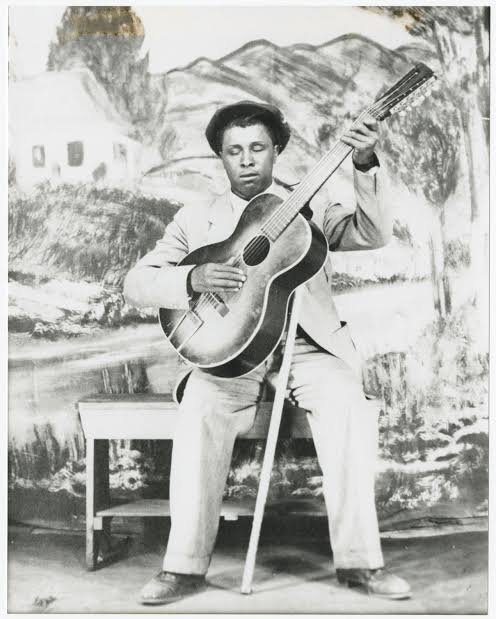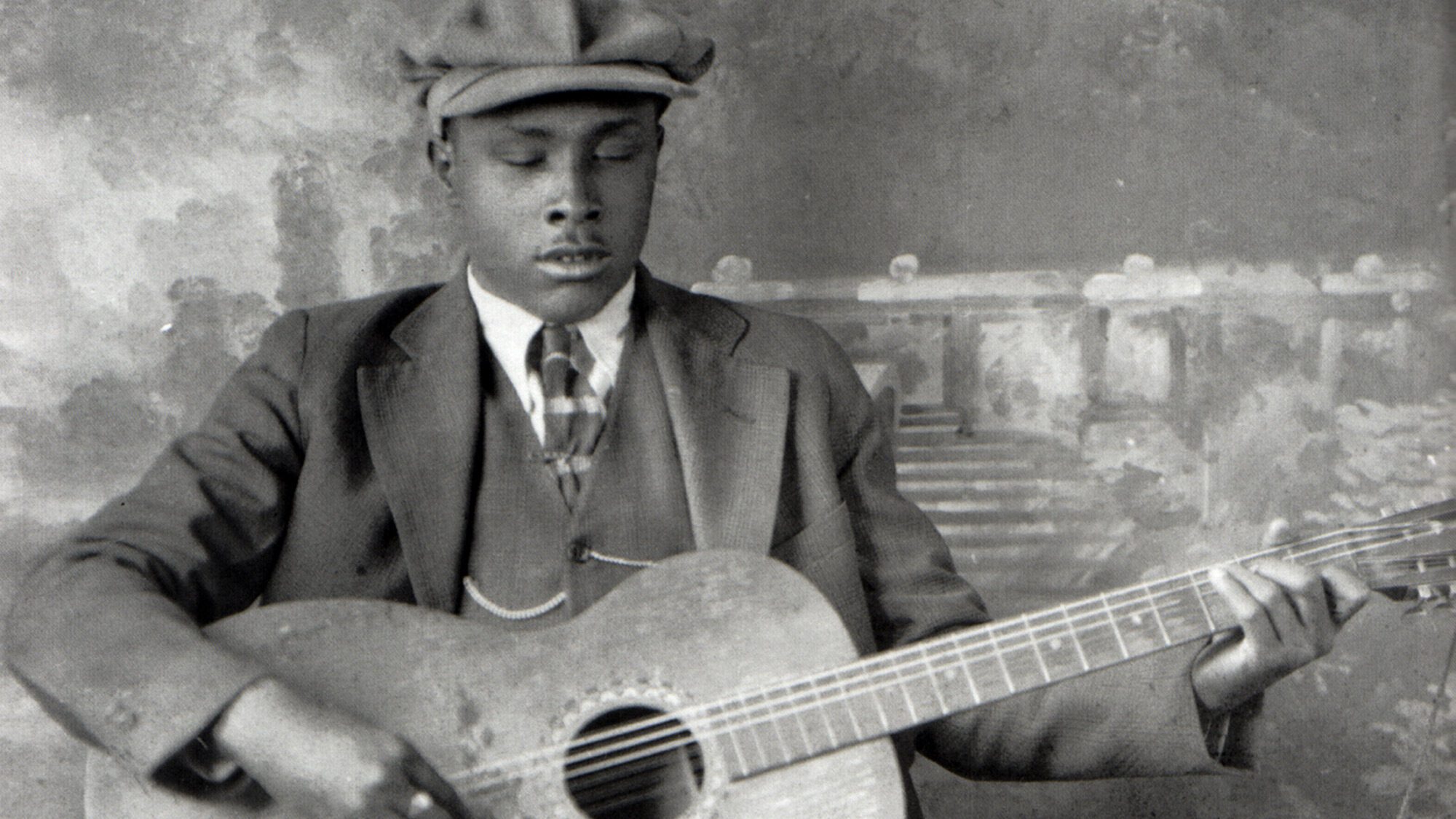Early Life and Background
Blind Willie McTell, born William Samuel McTier on May 5, 1898 (or possibly 1901), in Thomson, Georgia, was one of the most influential blues musicians of the early 20th century. He was blind from birth or lost his sight at an early age, yet this did not prevent him from developing an extraordinary talent for music. Raised in a musical family, he learned to play the guitar as a child and soon developed a unique, intricate style of fingerpicking that would set him apart from his contemporaries.
McTell attended schools for the blind in Georgia, where he honed his musical abilities and was exposed to a wide variety of musical traditions. His education helped him develop a vast repertoire that included blues, ragtime, gospel, and even popular music of the time. This versatility would become one of his trademarks as a performer.
Musical Career
Blind Willie McTell began his recording career in 1927 with Victor Records, releasing his first sides, including “Stole Rider Blues” and “Mama, ‘Tain’t Long Fo’ Day.” His distinctive 12-string guitar playing and smooth, expressive voice quickly made him stand out. Unlike many blues musicians of his era, McTell did not limit himself to a single record label—he recorded under various names for different companies, including Columbia, Vocalion, Bluebird, and Decca.
During the 1930s and 1940s, McTell continued to record and perform, often busking on street corners, playing at parties, and appearing at local venues. His ability to blend different styles made him a versatile and sought-after performer. Some of his most famous songs from this period include “Statesboro Blues,” “Southern Can Is Mine,” and “Broke Down Engine.”
One of the most remarkable aspects of McTell’s career was his storytelling ability. His songs often painted vivid pictures of Southern life, capturing themes of love, hardship, travel, and social change. His lyrical sophistication and complex guitar work influenced generations of musicians, from early blues artists to later rock musicians.
Later Years and Influence
Despite the decline of early blues recording opportunities in the 1940s, McTell remained an active performer. He continued playing on the streets of Atlanta and worked as a preacher and musician at a church in his later years. In 1949, folklorist and music historian John Lomax recorded a series of interviews and performances with McTell for the Library of Congress. These recordings provided invaluable insight into McTell’s life, musical influences, and views on the blues.
McTell’s health began to decline in the early 1950s, and he eventually passed away on August 19, 1959, due to a stroke. Though he never achieved widespread fame during his lifetime, his influence on blues and popular music has been profound. His song “Statesboro Blues” was famously covered by The Allman Brothers Band, bringing his music to a new generation of listeners.
Legacy
Blind Willie McTell’s impact on blues music is undeniable. His sophisticated guitar techniques, deep knowledge of multiple musical styles, and poetic storytelling have earned him a lasting place in the history of American music. Artists such as Bob Dylan, Taj Mahal, and The White Stripes have cited him as an influence, further cementing his legacy as one of the great blues musicians of all time.
Today, McTell is remembered not only through his recordings but also through annual festivals in Georgia dedicated to his memory. His ability to transcend the traditional boundaries of blues music ensures that his work remains timeless, continuing to inspire musicians and audiences alike.


Comments are closed